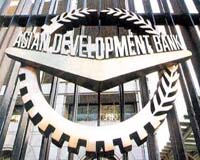| . |  |
. |
Beijing (AFP) April 14, 2010 Wang Shengpei runs a factory in southern China that churns out leather boots, high heels and trainers for consumers in the United States, Europe and Southeast Asia. And he is worried. Wang is one of thousands of manufacturers across China bracing for a change in the nation's exchange rate policy, which he fears could squeeze his already razor-thin profit margins and make it harder to compete in overseas markets. "I hope it will not rise too fast if it has to appreciate," said Wang, chairman of Dongguan Kuari Shoes Industrial Group based in Guangdong province, the country's manufacturing hub. "If the yuan rises by one percent, our profit margin will fall by 0.5 percent because the prices have already been set (with customers). There will be quite a big impact on the overall industry's profit margins." Speculation is growing that Beijing may soon let the yuan appreciate, which will make Chinese shipments of electronics, clothes and shoes more expensive, but help boost consumer spending by reducing the cost of imported products. Export-driven China has effectively pegged the yuan to around 6.8 to the dollar since July 2008 to support manufacturers battered by the financial crisis and preserve jobs in a sector that employs tens of millions of people. But critics say it has given Chinese manufacturers an unfair advantage by making their exports cheaper and US lawmakers have been pushing for China to be labelled a "currency manipulator" -- opening the door to possible sanctions. US President Barack Obama pushed Chinese President Hu Jintao on the issue during their talks in Washington this week, saying the yuan was "undervalued", but Beijing has repeatedly said it will not bow to foreign pressure. The impact of a stronger currency on China's exporters has weighed heavily on policymakers who have signalled in recent weeks that a change in policy could be in the offing. The Asian nation overtook Germany in 2009 to become the world's biggest exporter after overseas shipments reached 1.2 trillion dollars. China, has reportedly been testing the potential impact of a strong yuan on its labour-intensive manufacturing sector. Initial results show that each percentage point rise in the value of the yuan erodes one percentage point in exporters' profit margins, which average between three to five percent, state media has said. China made its currency a little more flexible in 2005, allowing the yuan to appreciate about 20 percent against the dollar. But when the global financial crisis erupted in 2008, it repegged the currency to prop up Chinese exports. Economists say a strong yuan is essential if China wants to achieve its goal of reducing its heavy reliance on exports and boosting private consumption as a driver of the world's third-largest economy. "Exporters will suffer from a stronger currency," said Ben Simpfendorfer, an economist at Royal Bank of Scotland in Hong Kong. "But currency appreciation will also force the pace of structural adjustment in the low value-added export sector, which is a necessary part of domestic rebalancing." The exchange rate policy has propped up poor performing exporters at the expense of the broader economy, said Patrick Chovanec, an economics professor at Tsinghua University in Beijing. "It's important to ask why exporters are currently doing well or remaining in business. Many of them can only do so because they're able to exchange the dollars they earn for yuan at the peg," Chovanec told AFP. "That's great for exporters but the central bank has to buy all those dollars at the peg, invest them, and neutralise the inflationary effect. That's a significant burden." Faced with the threat of smaller profit margins, exporters will need to raise prices and hold wages steady to cope with the stronger currency, said Wang. But he admitted that would not be easy. "It depends on the situation firms are facing and whether clients are understanding and accept price hikes," said Wang. "It is very hard to raise the price once it is set. There will be less room to raise wages for workers if the yuan appreciates."
Share This Article With Planet Earth
Related Links Global Trade News
 ADB urges China to make yuan more flexible
ADB urges China to make yuan more flexibleBeijing (AFP) April 14, 2010 The Asian Development Bank on Tuesday urged Beijing to loosen its grip on its currency, saying a more flexible exchange rate would benefit China as well as Asia-Pacific countries. The Manila-based lender entered the fray in the mounting debate over the value of the yuan as it released its 2010 development outlook, in which it said China needed to boost domestic consumption to curb its depend ... read more |
|
| The content herein, unless otherwise known to be public domain, are Copyright 1995-2010 - SpaceDaily. AFP and UPI Wire Stories are copyright Agence France-Presse and United Press International. ESA Portal Reports are copyright European Space Agency. All NASA sourced material is public domain. Additional copyrights may apply in whole or part to other bona fide parties. Advertising does not imply endorsement,agreement or approval of any opinions, statements or information provided by SpaceDaily on any Web page published or hosted by SpaceDaily. Privacy Statement |